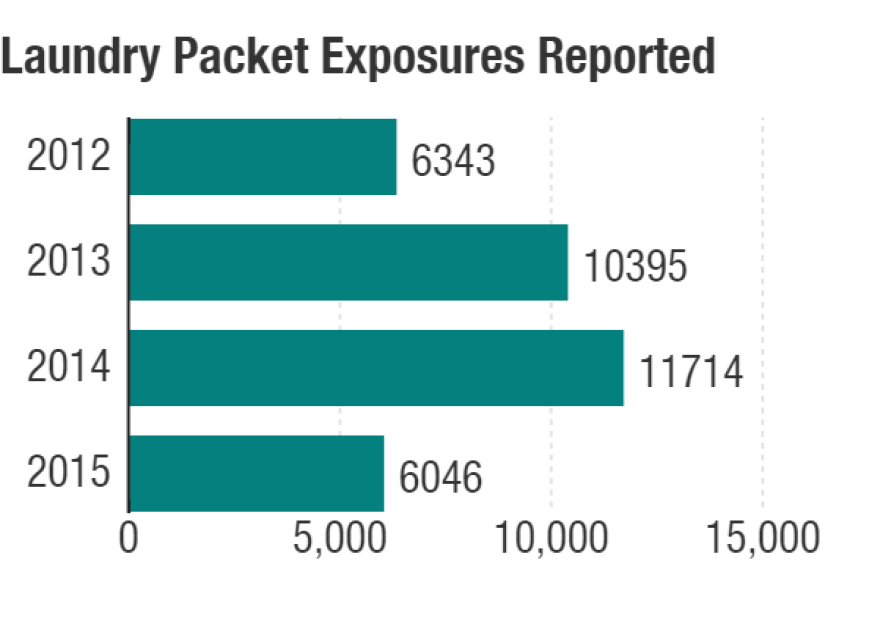Consumer Reports, the granddaddy of advice-givers on what to buy, won't recommend laundry pods containing liquid detergent anymore. The risks to small kids are just too high, the magazine says.
In its latest tests, eight different single-use packets were rated very good at cleaning. That wasn't a strong enough showing to put any of them among the top three laundry detergents, which got the magazine's recommended check mark.
But the real problem is safety. Despite some changes in packaging and a heightened awareness of the risks to kids, the number of health incidents involving the pods continues to climb.
Through June, 6,046 incidents involving pods and kids younger than 6 have been reported to the American Association of Poison Control Centers. The exposures, as the AAPCC calls them, include ingestion, inhalation and contact with eyes and skin. Health problems after exposure include wheezing, gasping, extreme sleepiness, vomiting and corneal abrasions.
If the incidents continue to be reported at the current pace, they'll exceed the 11,714 that were registered by the poison control centers in 2014.

Procter & Gamble, maker of Tide pods, didn't immediately respond to a request for comment.
"Given the continued danger, we have made the decision to not include pods on our list of recommended products," says the article in the September issue of the magazine. "And we strongly urge households where children younger than 6 are ever present to skip them altogether." The magazine says its "new position doesn't apply to laundry (or dishwasher) pods that contain powder, because injuries associated with them are less frequent and less severe."
The AAPCC says households with children should take precautions with the pods. "Our official stance from a poison prevention and education standpoint is that single-use laundry packets should be kept up, away and out of sight of children," Krista Osterthaler, national director of outreach for AAPCC, tells Shots. The poison control centers would also like to see packaging improvements to make the products more child-resistant and additional labeling to tell consumers about the dangers.
"We would also support efforts in reformulation to make them less toxic," she says. "We just don't know what that looks like."
Update 2:35 p.m. ET: Procter & Gamble provided a statement by email:
"We take every incident of accidental exposure seriously and believe these accidents are preventable. Less than 1% of the calls to Poison Control centers were related to laundry pacs, and the vast majority of these calls to Poison Control centers resulted in minor or no medical treatment. Today, we are seeing encouraging signs that the rate of accidents relative to the number of P&G laundry pacs sold is declining at a rate of 28 percent."
Copyright 2020 NPR. To see more, visit https://www.npr.org.


